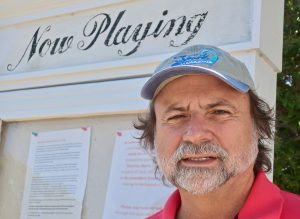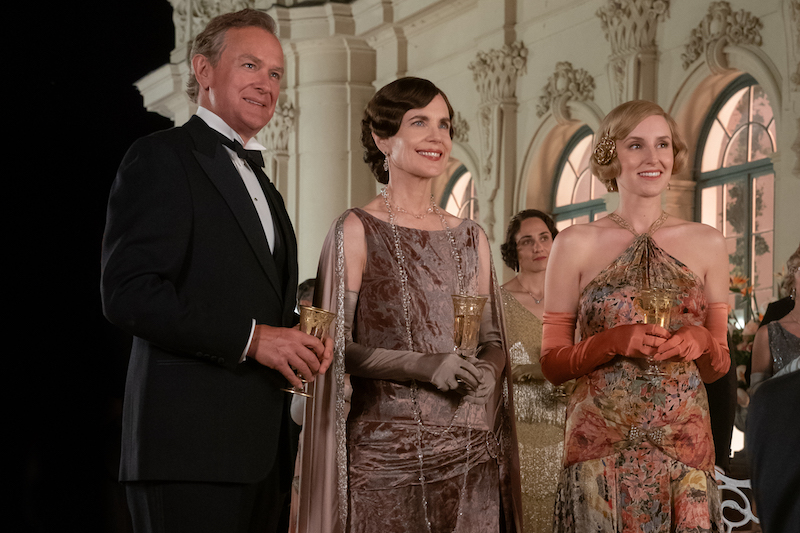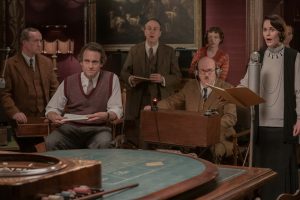Let’s be clear from the start: I love “Downton Abbey.”
I loved the show. I loved the first movie. And I love the new sequel, “Downtown Abbey: A New Era” (PG, 125 minutes, starts May 18 in theaters).
Say what you will about this “Upstairs/Downstairs” Brit saga about the aristocratic Crowleys and their servants: “It’s just a soap opera.”
Guilty as charged, but what a soap opera!
“Who wants to watch a bunch of spoiled snobs who think they’re superior to everyone else?”
Yes, I get that. But watching “Downton Abbey” can give you insight into how context is everything, how a dowager countess forcing herself to call a former chauffeur by his first name actually shows personal growth and can be surprisingly moving to observe. Who knew?
One of the extraordinary things “Downton Abbey” does is show how courage, nobility and kindness, or less desirable qualities, aren’t limited to a social class. People are people, no matter how much expensive jewelry they are – or aren’t – wearing.
The series, created by Julian Fellowes (“Gosford Park”), ran from 2010-2015 and offered a large group of characters with distinct personalities, virtues and flaws. And, speaking for myself, the more I got to know them, the more I came to love them. They became almost like family members – no matter where they stood in the social hierarchy – only from a distant past.
And so when “Downton Abbey: A New Era,” begins, with glimpses of these familiar characters during a wedding celebration, with John Lunn’s lush, rapturous theme on the soundtrack, it’s easy to get choked up. That feeling returns, again and again, as emotions are triggered by people in whose lives we’ve become invested.
The sequel, written by Fellowes and directed by Simon Curtis (“My Week With Marilyn”), takes place in 1928 and focuses primarily on two events: a trip to the South of France and the arrival of a movie crew at the Downton country estate in Yorkshire.
The trip to France becomes necessary when Violet Crowley (Maggie Smith), Dowager Countess of Grantham, inherits a villa there that has been left to her by a newly deceased mystery man from her long-ago (as in 60+ years) past. The aging Lady Violet can’t make the trip herself because of her failing health, but several of her family members – including son and family patriarch Robert (Hugh Bonneville) – and staff go.
Typical of the Crawleys, the older ones, at least, they’re not too thrilled about allowing movie people into Downton. But the roof is leaking, and money is needed for repair, so the family swallows its pride and allows them in. Complications arise, leading to Crawley daughter Lady Mary Talbot (Michelle Dockery), left in charge while her father is away, becoming more involved in the film’s making than originally planned.
While all of this is going on, in true “Downton Abbey” fashion, there is romance and several life-altering events. Despite the Crawleys’ efforts to maintain the traditions and lifestyles of the past, the world is always changing for them, and this “New Era” is no exception.
“Downton” fans no doubt have their favorite actors in their roles, and there are so many from which to choose. As the sharp-witted Dowager Countess, Smith is her usual scene-stealing, hilarious self (I’d love to see her get a best supporting actress Oscar for this). Dockery projects the inner strength and dignity to make Lady Mary the logical person to lead Downton and the family into the future. And Robert James-Collier is great, as always, as Thomas Butler, a family servant who was once a bitter, manipulative villain but has evolved into a loyal, decent man as he’s started to come to terms with his homosexuality.
Fellowes has developed these characters – and most of the others – in ways that, while showing their shortcomings, celebrate their essential goodness. Some people might find this a saccharine view of life. Others might find it realistic, inspiring and, well, beautiful. I know I do. **** (out of four)
** Click here for Tim Miller’s previous movie columns for Cape Cod Wave **
Please like Cape Cod Wave on Facebook.
Cape Cod Wave Magazine covers the character & culture of Cape Cod. Please see our Longform stories.

Tim Miller
Tim Miller is a Cape-based member of the Boston Society of Film Critics. He also teaches film and journalism at Cape Cod Community College in West Barnstable. You can contact Tim at [email protected] or follow him on Twitter @TimMillerCritic. Or you can ignore him completely.
































